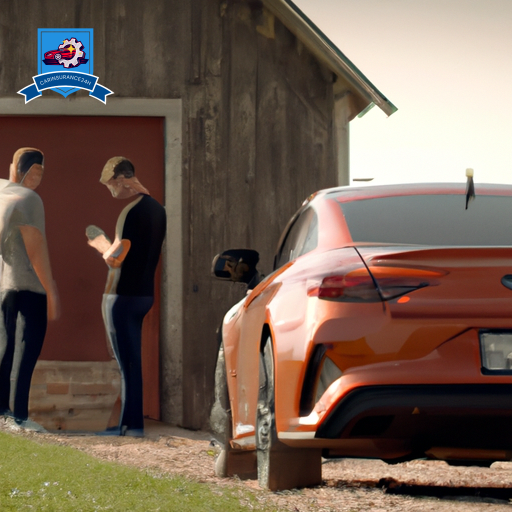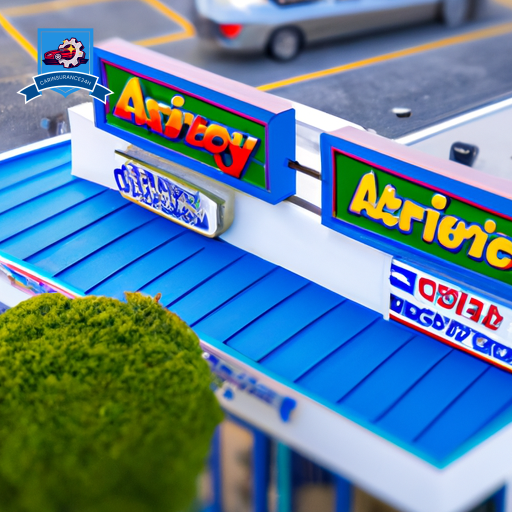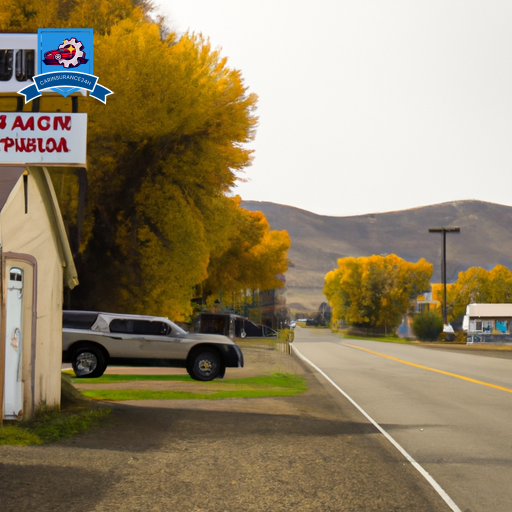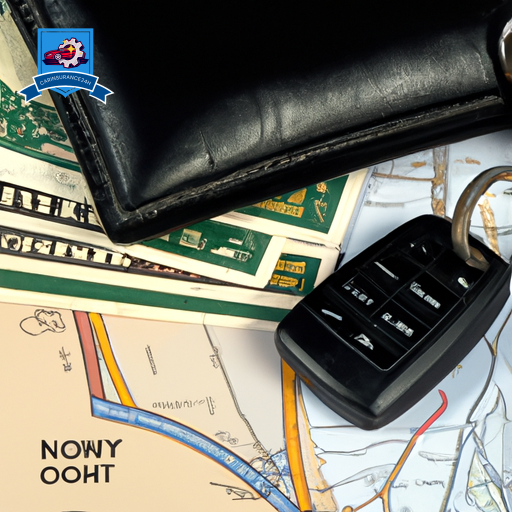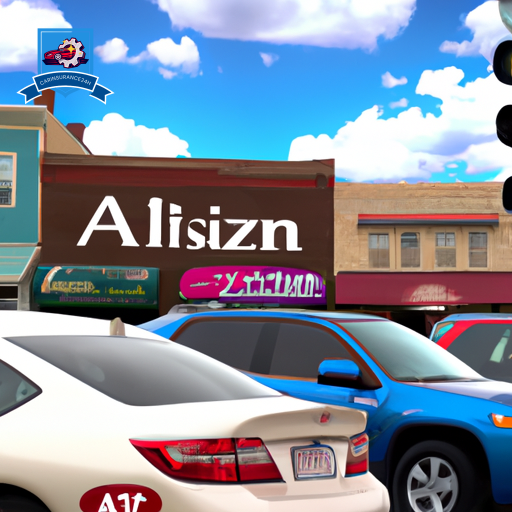When it comes to navigating the realm of Maine auto insurance, a comprehensive understanding of the state’s requirements, available coverage options, and the intricate web of factors influencing insurance rates is paramount. From deciphering the nuances of deductibles and coverage limits to ensuring compliance with Maine’s auto insurance laws, there are various facets to consider. Furthermore, exploring potential savings avenues and the process of filing a claim can significantly impact one’s insurance experience. However, the key lies in making informed decisions and selecting the right insurance provider to safeguard against unforeseen circumstances.
Maine Auto Insurance Requirements
Maine auto insurance requirements mandate that all drivers must maintain a minimum level of coverage to legally operate a motor vehicle in the state. These minimum requirements are in place to ensure that drivers have basic protection in case of accidents. The mandatory minimum coverage in Maine includes Bodily Injury Liability coverage of at least $50,000 per person and $100,000 per accident, as well as Property Damage Liability coverage of $25,000.
When considering auto insurance in Maine, various cost factors come into play. The premium for auto insurance is influenced by factors such as the driver’s age, driving record, the make and model of the vehicle, and the coverage limits chosen. Additionally, the deductible amount selected by the policyholder can affect the cost of the insurance premium.
It is crucial for drivers in Maine to be aware of these minimum requirements and cost factors when purchasing auto insurance. Failing to meet the state’s mandated minimum coverage could result in fines, license suspension, or other legal consequences. Understanding the various elements that contribute to the cost of auto insurance can help drivers make informed decisions when selecting coverage that meets their needs while complying with Maine’s auto insurance requirements.
Types of Coverage Available
When considering Maine auto insurance, it is crucial to understand the types of coverage available. These encompass various limits that dictate the extent of protection offered and optional add-ons that can enhance your policy. Familiarizing yourself with these options will enable you to tailor your coverage to suit your specific needs and ensure comprehensive protection on the road.
Types of Coverage Limits
Considered essential for protecting drivers and their vehicles, Maine auto insurance offers various types of coverage limits to ensure financial security in case of accidents. These coverage limits determine the maximum amount an insurance company will pay for a covered claim. Policy customization allows drivers to tailor their coverage limits to suit their individual needs. It’s crucial for policyholders to be aware of coverage exclusions, which are specific situations or items not covered by the insurance policy. Understanding coverage limits, exclusions, and customization options is vital for drivers to make informed decisions when selecting an auto insurance policy in Maine. By carefully assessing these factors, individuals can ensure they have the appropriate level of coverage to protect themselves and their vehicles in various circumstances.
Optional Add-Ons for Protection
One key aspect to consider when selecting Maine auto insurance coverage is the availability of optional add-ons for enhanced protection. These optional add-ons can provide additional coverage beyond the standard policy, ensuring you are well-protected in various situations. Here are four essential optional add-ons to consider:
- Roadside Assistance Coverage: Provides assistance if your vehicle breaks down, offering services like towing, tire changes, and fuel delivery.
- Glass Coverage: Helps with the repair or replacement of damaged vehicle windows or windshields.
- Gap Insurance: Covers the difference between what you owe on a vehicle loan or lease and the vehicle’s actual cash value if it’s totaled.
- Rental Car Coverage: Pays for a rental car if your vehicle is being repaired due to a covered incident.
Factors Affecting Insurance Rates
When it comes to determining auto insurance rates in Maine, two critical factors come into play: driving record impact and vehicle type factor. Insurers analyze an individual’s driving history to assess their risk level, with a clean record often leading to lower premiums. Additionally, the type of vehicle being insured can significantly influence the insurance rate, considering factors such as safety features, theft rates, and repair costs.
Driving Record Impact
Factors related to an individual’s driving record significantly influence their auto insurance rates in Maine. When assessing a driver’s history, insurance companies consider various aspects that can impact premiums and coverage. Here are four critical points to consider:
- Accident Forgiveness: Offering accident forgiveness can mitigate the premium impact of an at-fault accident for policyholders who have maintained a clean driving record.
- License Suspensions: License suspensions can lead to higher insurance rates as they indicate risky driving behavior and potential future claims.
- Traffic Violations: Accumulating traffic violations can result in increased insurance premiums due to the higher risk associated with frequent traffic infractions.
- Driving Experience: Drivers with more experience typically receive lower insurance rates as they are perceived as less likely to be involved in accidents.
Vehicle Type Factor
The type of vehicle a policyholder owns plays a significant role in determining their auto insurance rates in Maine due to various factors associated with the vehicle type. Vehicle safety features, accident statistics, and repair costs are key elements that influence insurance premiums. Cars with advanced safety features such as automatic emergency braking and lane departure warning systems often qualify for lower insurance rates due to reduced risk of accidents and injuries. Moreover, vehicles with high safety ratings from organizations like the Insurance Institute for Highway Safety (IIHS) typically result in lower insurance premiums. Insurers consider the overall safety profile of a vehicle when calculating insurance costs, making it essential for policyholders to choose cars that prioritize safety.
| Factors Influencing Insurance Premiums |
|---|
| Vehicle Safety Features |
| Accident Statistics |
| Repair Costs |
Understanding Deductibles and Limits
Navigating through the intricacies of deductibles and limits in Maine auto insurance requires a comprehensive understanding of the policies and their implications. When selecting deductible options and coverage, individuals must carefully weigh their choices to ensure they strike the right balance between premium costs and out-of-pocket expenses in the event of a claim. Coverage limits and policy customization play a crucial role in tailoring the insurance to fit individual needs and circumstances effectively.
To help you navigate this complex terrain, here are four key points to consider:
-
Deductible Options: Choosing a higher deductible can lower premiums but may result in higher out-of-pocket expenses during a claim. On the other hand, a lower deductible typically means higher premiums but lower immediate costs after an accident. Consider your financial situation and risk tolerance when deciding on a deductible.
-
Coverage Limits: Understanding the coverage limits is vital to ensure you are adequately protected in various scenarios. Evaluate your assets, potential liabilities, and the value of your vehicle to determine appropriate coverage levels.
-
Policy Customization: Tailoring your policy to your specific needs can provide added peace of mind. Whether it’s additional coverage for roadside assistance, rental car reimbursement, or gap insurance, customizing your policy can offer enhanced protection.
-
Review Regularly: Regularly reviewing your deductible options and coverage limits is essential as your circumstances change. Adjustments may be necessary to ensure you have adequate protection at all times.
Maine Auto Insurance Laws
Understanding the intricate framework of Maine auto insurance laws is essential for all drivers in the state to ensure compliance and protection in case of accidents or incidents on the road. Maine auto insurance laws mandate certain minimum requirements for drivers. In Maine, all drivers are required to carry a minimum liability insurance policy that includes coverage of at least $50,000 per person for bodily injury, $100,000 per accident for bodily injury, and $25,000 for property damage. Failure to maintain the minimum insurance coverage can result in severe penalties.
Maine auto insurance laws also outline penalties for driving without insurance or allowing a lapse in coverage. Penalties for driving without insurance in Maine can include fines, license suspension, and potential vehicle impoundment. Additionally, individuals may be required to file proof of insurance (SR-22) with the Bureau of Motor Vehicles to reinstate their driving privileges after a violation.
To ensure compliance with Maine auto insurance laws, drivers must carry proof of insurance in their vehicles at all times. This proof should include details of the insurance policy, such as the coverage limits and policy number. Understanding and adhering to Maine’s auto insurance laws not only helps drivers avoid penalties but also ensures they are adequately protected in the event of an accident.
Shopping for Auto Insurance in Maine
When shopping for auto insurance in Maine, understanding the different coverage options available is crucial. Maine residents should consider factors like liability coverage, uninsured/underinsured motorist protection, and comprehensive coverage when selecting a policy. Additionally, comparing quotes from multiple insurers can help in finding the best rates tailored to individual needs and budget.
Coverage Options in Maine
Exploring the various coverage options available in Maine is essential for individuals seeking auto insurance in the state. When comparing coverage options, consider the following to make an informed decision:
- Liability Coverage: Protects you if you’re at fault in an accident.
- Uninsured Motorist Coverage: Safeguards you in case of a collision with an uninsured driver.
- Personal Injury Protection (PIP): Covers medical expenses for you and your passengers.
- Comprehensive Coverage: Offers protection for non-collision related incidents like theft or natural disasters.
Finding Best Rates
Continuing our exploration of Maine auto insurance, the next crucial step is to navigate the process of finding the best rates while shopping for coverage in the state. When looking for auto insurance in Maine, it’s essential to compare quotes from different insurance providers to ensure you are getting the most competitive rates. One effective way to potentially lower your insurance costs is by bundling policies, such as combining your auto and home insurance. By bundling, insurance companies often offer discounts, resulting in overall savings on your premiums. Below is a table for a quick comparison:
| Insurance Company | Quote for Auto Insurance | Bundle Discount Offered |
|---|---|---|
| XYZ Insurance | $800 | 10% off |
| ABC Insurance | $750 | 15% off |
| LMN Insurance | $820 | 12% off |
Discounts and Savings Opportunities
To enhance affordability and promote responsible driving habits, Maine auto insurance providers offer a range of valuable discounts and savings opportunities to eligible policyholders. These incentives encourage policyholders to maintain safe driving practices and reward loyalty to the insurance company. Here are some common discounts and savings opportunities available in the Maine auto insurance market:
-
Safe Driving Rewards: Maine auto insurance companies often provide discounts to policyholders who maintain a clean driving record. By avoiding accidents and traffic violations, drivers can qualify for reduced premiums as a reward for their safe behaviors on the road.
-
Multi Policy Discounts: Policyholders who bundle their auto insurance with other types of insurance, such as homeowners or renters insurance, can often receive a discount on their overall premiums. This multi-policy discount encourages customers to consolidate their insurance needs with one provider, leading to cost savings across their various policies.
-
Good Student Discounts: Students who demonstrate academic excellence may be eligible for discounts on their auto insurance premiums. By achieving good grades in school, young drivers can showcase their responsibility and commitment, which insurance companies often reward with lower rates.
-
Low Mileage Discounts: Drivers who log fewer miles on their vehicles each year may qualify for low mileage discounts. This discount acknowledges that lower mileage typically correlates with reduced exposure to potential accidents, making these policyholders less risky to insure.
Filing a Claim in Maine
Upon encountering an auto accident or other covered incident, navigating the process of filing a claim with your Maine auto insurance provider is crucial for initiating the reimbursement or repair procedures. The claim process in Maine typically involves notifying your insurance company promptly after the incident. This notification should include details such as the time and location of the event, a description of what occurred, and any relevant information about other parties involved. Following this initial notification, the insurance company will guide you through the necessary steps to process your claim efficiently.
When filing a claim in Maine, your coverage selection plays a significant role in determining the extent to which you are protected. Maine auto insurance policies offer various types of coverage, such as liability, collision, comprehensive, uninsured motorist, and medical payments. Understanding the specifics of your coverage can help streamline the claim process by ensuring that you are aware of what is included in your policy and what you are entitled to claim in different scenarios.
SR-22 Insurance in Maine
When dealing with auto insurance requirements in Maine, understanding the implications and obligations associated with SR-22 insurance becomes essential for individuals needing to fulfill specific legal mandates. SR-22 insurance is a form of certification proving that a driver has the minimum required auto insurance. In Maine, this is often required for individuals who have been convicted of certain driving violations or offenses.
Emotion-Evoking List:
- Financial Consequences: Failure to maintain SR-22 insurance can lead to severe financial penalties and further legal issues.
- Stress of Risk Classification: Being labeled as a high-risk driver due to the need for SR-22 insurance can be emotionally taxing and impact self-esteem.
- Impact on Daily Life: The restrictions and increased insurance premiums that come with SR-22 insurance can disrupt daily routines and financial planning.
- Fear of Consequences: The constant worry about the potential consequences of not adhering to SR-22 requirements can create anxiety and uncertainty in individuals.
High-risk driver classification can have long-lasting consequences, affecting insurance rates and eligibility for coverage. It is crucial for individuals in Maine to fully comprehend the implications of SR-22 insurance, including the potential insurance penalties and the reinstatement process. By abiding by the requirements set forth for SR-22 insurance, individuals can work towards reinstating their driving privileges and improving their standing within the auto insurance system.
Tips for Choosing a Provider
Selecting an auto insurance provider can significantly impact the quality of coverage and services received, making it imperative for individuals in Maine to carefully consider key factors when choosing a provider for their SR-22 insurance needs. When embarking on the journey of selecting an auto insurance provider, conducting a thorough provider comparison is essential. By evaluating multiple providers based on criteria such as reputation, financial stability, customer service, and premiums offered, individuals can make an informed decision that aligns with their specific requirements.
One crucial aspect to consider when choosing an auto insurance provider in Maine is coverage selection. Individuals seeking SR-22 insurance must ensure that the provider offers the necessary coverage to meet the state’s requirements. It is vital to review the policy details, including liability limits, comprehensive and collision coverage, uninsured/underinsured motorist coverage, and any additional options that may be beneficial based on individual circumstances.
Moreover, when comparing providers, it is essential to analyze the ease of filing claims, the efficiency of the claims process, and the provider’s track record in handling claims. Reading reviews and seeking recommendations from trusted sources can also provide valuable insights into the reliability and trustworthiness of the insurance provider. By carefully evaluating these factors, individuals can make an informed decision when selecting an auto insurance provider for their SR-22 insurance needs in Maine.
Frequently Asked Questions
Can I Use My Maine Auto Insurance Coverage if I Am Involved in an Accident Out of State?
When involved in an accident out of state, the coverage provided by your auto insurance policy may differ. It is essential to review your policy details as some insurance companies offer limited coverage for out-of-state incidents. Traveling abroad may also impact your coverage, so understanding the limitations of your insurance when outside your state of residence is crucial. Contacting your insurance provider for specific information on out-of-state coverage is recommended.
Does My Maine Auto Insurance Policy Cover Rental Car Expenses if My Car Is in the Shop for Repairs?
Does your auto insurance policy include rental reimbursement coverage for times when your vehicle is undergoing repairs at a repair shop? Rental reimbursement coverage is designed to provide financial support for renting a temporary replacement vehicle while your car is being repaired. It is crucial to review your policy to determine if this coverage is included and to understand any limitations or requirements associated with utilizing this benefit during repair periods.
Are There Any Specific Requirements for Insuring a Teen Driver in Maine?
When insuring a teen driver, it is crucial to understand the specific requirements imposed by state laws. Insurance requirements for inexperienced drivers typically include higher premiums due to their higher risk profile. Coverage options vary but often include liability, collision, and comprehensive coverage. Maine laws may mandate certain minimum coverage levels for teen drivers to ensure financial responsibility in case of accidents. Understanding these requirements is essential for compliance and adequate protection.
How Does My Credit Score Impact My Auto Insurance Rates in Maine?
A credit score can act as a key determinant of auto insurance premiums, akin to a compass guiding rates. Insurers often consider credit scores when assessing risk levels, with lower scores potentially leading to higher premiums. On the flip side, a good credit score may result in discounts on auto insurance. Understanding the impact of credit score on insurance rates in Maine is crucial for individuals seeking to optimize their coverage costs.
What Steps Should I Take if My Maine Auto Insurance Claim Is Denied?
If your auto insurance claim is denied, the first step is to carefully review the denial letter to understand the reasons behind the decision. Following this, you can consider appealing the denial through the insurance company’s internal appeals process. If the appeal is unsuccessful, you may have legal options available to you, such as seeking assistance from a legal professional or filing a complaint with the appropriate regulatory agency.



